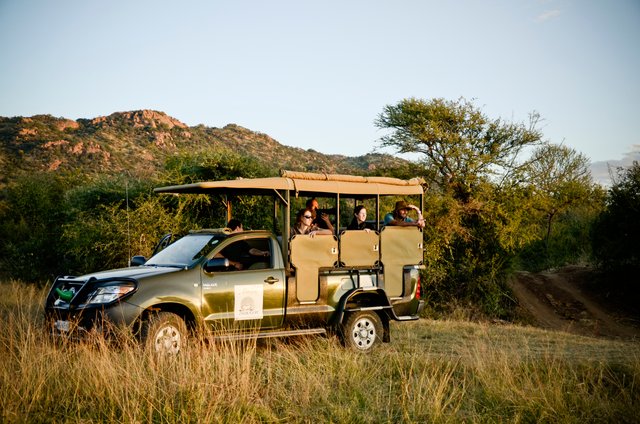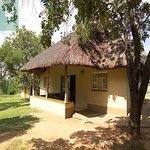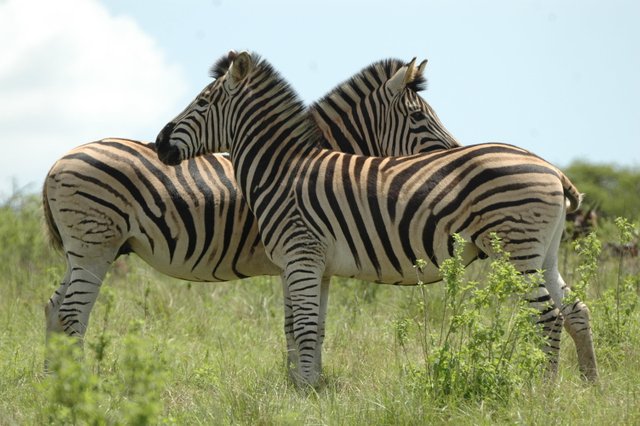The Oldest Rest Camp in the Kruger National Park,South Africa.

WELCOME TO PRETORIUSKOP REST CAMP.
Pretoriuskop is the oldest rest camp in the Kruger National Park. The design and layout of the camp, as well as the style of the accommodation, easily gives away the age of the camp.
But although it has a rich and interesting history, Pretoriuskop has been brought up to date and it remains a very popular camp for overnight guests.
Visit the official website - https://pretoriuskop.com/
Some of the camp basics that you can expect when you book your stay at Pretoriuskop Rest Camp, Kruger National Park includes:
A licensed restaurant and cafeteria known to offer refreshing, affordable meals.
A few wilderness trails surrounding the camp.
Night drives as well as day safari tours (should you not have already booked one).
A stunning natural rock pool for guests to cool off in during the summer months.
A variety of different accommodation units fit with modern furnishings and basic amenities.
THE CAMP IS SITUATED ABOUT 9 KILOMETRES FROM NUMBI GATE AND ABOUT 60 KILOMETRES FROM PAUL KRUGER GATE.
THE HISTORY OF PRETORIUSKOP REST CAMP
As the oldest camp in the park, Pretoriuskop Rest Camp has seen the park grow and evolve into what it is today. The best place to start when telling the history of the camp is with the name.
In the 1800s, what is now Pretoriuskop was a stopover for those who were travelling from Lydenburg to Delagoa Bay. The camp is named after a nearby hill, or kopje, where the Voortrekker Willem Pretorius is buried. He was a member of the expedition led by Carl Trichardt, which was heading to Delagoa Bay in 1848. You can see his grave on the main road to Skukuza, as you enter the park.
Back during the times when a trade route ran through this area, travellers took advantage of the higher altitude. Up here there were fewer mosquitoes and not as many tsetse flies.
But it was not just a place of colonial trade. There is a mountain just south of the camp called Manungu. It got its name after the local chief who ran a livestock camp as well as a trading store in the area. The Chief Manungu did plenty of trade with the transport riders passing through the areas as well as other travellers who were moving between the mining towns in search of riches.
IN THIS AREA YOU WILL ALSO FIND PLENTY OF SAN ROCK ART, SO WHEN VISITING BE SURE TO ASK RECEPTION ABOUT WHERE THE ROCK ART IS.
THE HOME OF THE FAMOUS PARK RANGER

When walking through the rest camp, you will see stunning bougainvillaea as well as red flamboyant plants which are the work of Harry Wolhuter who planted them while he was a ranger in the park. This makes the camp the only place in the park where the strict rules regarding indigenous plants have been broken.
As one of the Kruger’s first rangers, Wolhuter’s influence on the history of the park is extensive. As for his influence on Pretoriouskop, the camp was once known as Wolhuter’s Hut. He stayed at the camp before his hut was transformed into tourist accommodation.
https://www.moafrikatours.com/tour-category/kruger-national-park-safaris/
Wolhuter is not only well known for being a dedicated park ranger but he is also known for fending off two hungry lions. While heading back to camp, riding ahead of his helpers, he was ambushed by two lions. The first took him down from his horse, its massive jaws clamping down on his shoulder. The lion dragged him into the bush. Before it could make a meal of its prey, Wolhuter had managed to grab hold of his knife. He stabbed the lion until the animal retreated and then managed to climb up a tree as the second lion was closing in.
Wolhuter’s helpers found him in the tree, with his faithful dog Bull sitting below. He was carried back to the camp and then he was placed on a train that would take him to the Barberton Hospital.
The ranger made a full recovery and to this day you can see the skin of the lion he managed to kill as well as his knife at the Stevenson-Hamilton Library in Skukuza.
CAMP ACCOMMODATION
As the first camp to open its doors to tourists, Pretoriuskop has been popular camp among tourists from the very start. Modern accommodation options include campsites, huts, bungalows, family cottages and guesthouses.
CAMPSITES
Always a favourite among guests, the campsite has 45 spaces available for tents and caravans. If you are in search of a real rustic experience, camping is the best way to go. Campsites are available both with and without electricity points and there are shared communal ablution blocks and cooking facilities. Hotplates, 24 hour boiling water as well as washing up facilities are also available.
HUTS
One of the most memorable styles of accommodation that you’ll find in the camp are the huts. They are beautifully laid out in circles, giving you a sense of community within the camp. There are 30 huts available and they sleep between 2 to 6 people. These huts have no bathrooms or kitchens, instead, you will need to rely on the communal facilities.
You can also choose from one of the other 46 huts which are kitted out with fridges and air conditioning.
BUNGALOWS
For those who are not ones to share kitchens or bathrooms, there is always the bungalow option. There are 54 bungalows available, accommodating up to 6 people depending on the bungalow you choose. Be sure to select your bungalow carefully as not all of them have kitchen facilities.
FAMILY COTTAGES
When you are holidaying with your family and extended family, you will need more than just a hut or a bungalow. The rest camp has 4 units capable of sleeping up to 6 people. The cottage includes a kitchen as well as bathroom facilities. In the kitchen, you will find a gas oven, a refrigerator, and all of the utensils you could need.
There is also a single 4 bed unit in the camp with the same amenities as the cottage mentioned above.
GUEST HOUSES
If you are a really big party, either the Pierre Joubert guest house or the Doherty Byrant guest house is available. The Pierre Joubert guest house can sleep up to 16 people in 4 bedrooms while the Doherty Bryant guest house can sleep 9.
Both of the guest houses are considered luxury accommodation and they are situated in prime spots within the camp. They are equipped just as you would expect luxury accommodation to be, with all of the creature comforts included.
Along with the various accommodation facilities available, there is also a host of helpful amenities that can make your stay all the more comfortable. In the camp, you will find a restaurant and cafeteria, a shop, a Laundromat, a filling station, a picnic area and a unique rock swimming pool.
IT IS NOT DIFFICULT TO SEE EXACTLY WHY SO MANY PEOPLE LOVE PRETORIUSKOP. FOR SOME, IT IS THE ONLY PLACE TO STAY. THE CAMP OFFERS A GORGEOUS PLACE TO STAY AND IT IS TRULY ONE OF THE BEST CAMPS FOR THOSE IN SEARCH OF A RUSTIC EXPERIENCE.
OTHER HELPFUL CAMP INFORMATION
It is always important to remember where you are. You are in the Kruger and it is wild even if the camp is seemingly calm. You need to keep your eyes peeled at all times for some of the other creatures who often sneak into the camp unseen. When walking anywhere be on the lookout for snakes, spiders and scorpions. They’ll generally stay well out of your way but it’s best to always be aware of what is around you. View Pretoriuskop Rates and Prices.
You also need to consider your health. Most of the Kruger is within a malaria area. While most locals will forgo medication, if you are an overseas visitor, we highly recommend seeing your doctor and getting the right medication before you arrive. The symptoms of malaria might only show up after you have returned from your holiday. Prevention is better than cure. Malaria can make you feel really miserable!
Finally, Pretoriuskop, along with the rest of the Kruger, is in a summer rainfall region. This means that summers are wet and humid, with the vegetation overgrown and the rivers often flooding low lying bridges. You can expect most of your summer days to end with a thunderstorm or a sudden downpour that will ease the stifling heat. If the heat is not your thing, you might prefer visiting in the winter. Even so, winters here are very mild and you won’t need too much extra clothing.
The season in which you visit the park will also have an effect on the camp times. There is a strict policy, for your own safety, to be within the camp at a certain time. The gate hours for Pretoriuskop are as follows:
January to March: Camp gates open at 04:30 am and close at 06:30 pm
April to September: Camp gates open at 06:00 am and close at 06:00 pm
October: Camp gates open at 05:30 am and close at 06:00 pm
November to December: Camp gates open at 04:30 am and close at 06:30 pm
These hours are perfect for those who enjoy early morning and late afternoon drives. The animals often hide from the midday heat so if you really want to make your safari worth the effort, it is well worth waking early.
GRADING AND ACCREDITATION
Star Grading: Not Graded
Green Rating Accreditation: No
Responsible Tourism Certified: No
THE ANIMALS AROUND THE CAMP
The Kruger is not about staying in the camps all day. It’s about that mind-blowing safari experience. Pretoriuskop is situated in one of the best areas in the park if you want to see all kinds of animals without driving around for days on end.
The vegetation might be a little thick, especially during the rainy summer months, and this can make it a little difficult to spot a well-hidden animal. Nevertheless, you are certainly going to be in for a visual treat when you are touring the area.
Animals of all kinds have been spotted on the popular routes in this region, as well as on the secondary roads that are scattered around the main routes. Leopards and buffalos are regularly sighted. You’ll have to keep your eyes on the trees if you hope to see a leopard as they are often well hidden in the shade.
It is also not uncommon to come across elephants, impalas, red duikers, kudus, waterbucks and lions. A day’s drive can take you to Skukuza and back, giving you ample opportunity to see all kinds of interesting animals.
A Kruger Park safari is not the only way to see the animals in the area. There is always the option of taking part in a bush walk. There are a variety of wilderness trails in the area, the most popular being the Napi Trail which will take you into the woodland bushveld.
